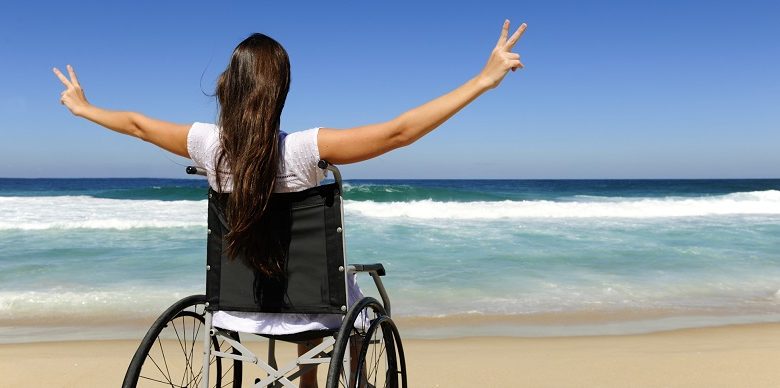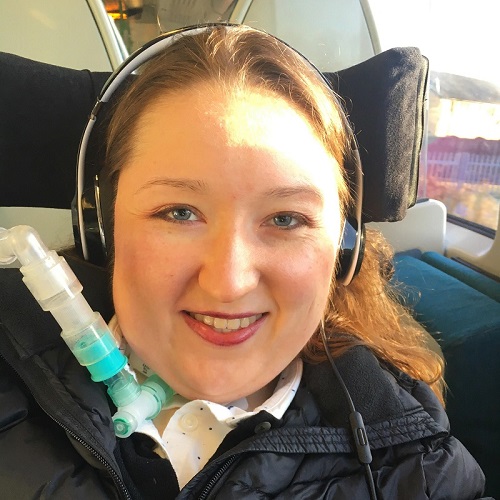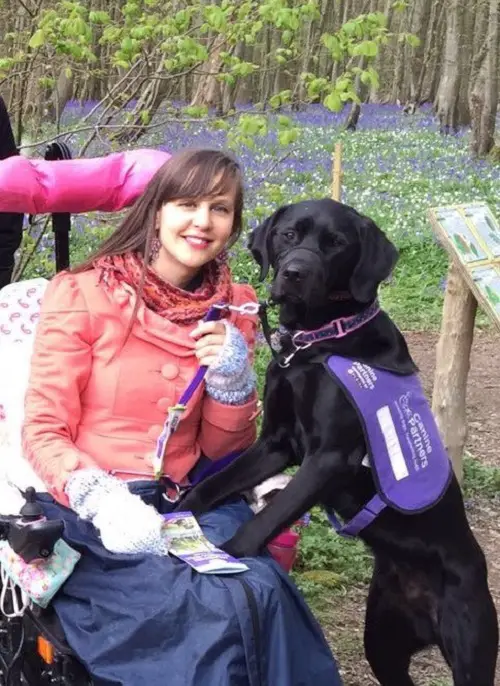
Listening to young disabled people to help make a change
Living Life to the Fullest is a social research project that seeks to forge a new understanding of the lives, hopes, desires and contributions of young disabled people. Here, we hear from some of the disabled co-researchers leading the project about how it aims to make young disabled people less excluded, ensure their lives are more visible and seek opportunities to meet their aspirations.
My name is Kirsty and I am just one of the researchers on this unique Living Life to the Fullest project, exploring the lives of young people with life-limiting and/or life-threatening impairments. The most exciting part for me, as a young(ish) disabled university researcher, is the Co-Researcher Collective – a fabulous group of young, committed and vibrant disabled people who are shaping and co-leading the project as it happens.
Run by the University of Sheffield, we’re working in partnership with leading disability, arts and digital organisations Purple Patch Arts, DMD Pathfinders and the Good Things Foundation.
The Co-Researcher Collective is built upon one simple principle: you can’t do high-quality research on a project about the lives of young disabled people without them playing a key role, having a say in it and leading it.
We write here very much as a collective, but we also want to include the stories of two co-researchers to show why they chose to give time to the project, and how it relates to their own lives.
Emma Vogelmann’s story

As a young disabled person living with a life-limiting disability, I answer a lot of surveys on my disability, my care and other similar topics. But I’m rarely asked about what it is really like to be 24 and disabled.
No one has asked me whether I’m scared about my future or whether my life-limiting condition has impacted my life choices. These are not pleasant things to think about, but I can promise you, nearly every disabled person has thought about them.
When I was asked whether I wanted to be a co-researcher for Living Life to the Fullest, I was excited by the idea of a project that focuses on those unasked questions. I wanted to help find out what our lives’ are really like and how we really feel about them.
The first task was to create interview questions to ask young disabled people. I wrote down all the things I wish I’d been asked about my life with a life-limiting condition. It included questions on body confidence, how society and the media impact how someone feels about themselves and whether they think about what doctors have said – mine claimed that I wouldn’t live past 5 years old. Boy were they wrong!
I really enjoyed coming up with questions that I know will have real relevance and meaning to the people we interview. I can’t wait to get the interviews started and understand more about what others really think about their own lives.
Sally Whitney’s story

I was a teenager when I became ill. There was no such thing as Facebook groups back then. I think Facebook was just becoming popular, but I wasn’t in a position to use it.
It meant that I was completely isolated. All my friends had left for university – they all had new lives in new cities, with new friends. I was the one left behind. The sense of loneliness and desperateness was immense.
There was no handbook on how to deal with that. Everyone is different, so there never can be a handbook on how to deal with illness and disability. But I strongly believe that there can and should be more support for young disabled people going through things that they would never have dreamt that they might have to endure.
I had to fight for everything, all while feeling desperately ill, frail, extremely vulnerable and having no clue about what was going on. I even had to fight to be listened to and respected by doctors and for a diagnosis.
I had to fight against the wrong diagnoses and against the stigma surrounding diagnoses that were obscure or unknown. I had to fight not to be forgotten.
Later, even with diagnoses in hand, I had to fight to get the appropriate personal care from local services so I could live safely in my own home.
Perhaps I wasn’t heard because I was a young person. Or perhaps it was because I am a woman. But these aren’t valid excuses.
I believe that every young person’s voice should be heard. We should be able to lead our lives just as enriched and just as fulfilled as our peers.
Obviously, with severe health issues, we are never going to have the exact same experiences or live the same lives as others who don’t have the same difficulties. But I have learnt, and I believe, that we can have experiences that are just as good as our peers. In fact, if anything, I’ve learnt that going through severe suffering has made the good times all the sweeter. The richness of my life is not wasted on me. I truly feel each blessing and I’m so grateful for them.
For every day I wished for normality, I could have used my energy celebrating my differences and made the best of being in the position I am in. I want to encourage others in similar situations to realise that. Although their lives may not look how they anticipated them to be, we can still live life to the fullest from the unique position we are in.
I have come across many inspiring, young, disabled people who have made amazing contributions to society from the place that they are at – unwell but fulfilled and full of hope.
The reason why I wanted to get involved in this project is because I feel that we have a duty to help young disabled people live their lives as they wish. To have experiences that, although are different and adapted from the experiences of our healthy counterparts, are just as rewarding – after all, we deserve that. Life is precious, let’s live it to the fullest.
Living Life to the Fullest
Emma and Sally’s stories both highlight exactly why young disabled people must be part of the research. They have extensive knowledge of what young disabled people are going through, a real commitment to social change, an acknowledgement of the value of disability and an appreciation that the everyday stories of young disabled people’s lives are deeply important and should be heard – to live life to the fullest now, and in the future.
If you want to learn more about Living Life to the Fullest, please see our website: livinglifetothefullest.org
If you are a young person living with a life-limiting and/or life-threatening impairments and would like to be interviewed for the projector get involved in the Co-Researcher Collective, get in touch k.liddiard@sheffield.ac.uk
By Kirsty Liddiard with Emma and Sally on behalf of the Co-Researcher Collective
More on Disability Horizons…
- Overcoming a stutter to fulfil my dream of teaching
- Knocking down disabling barriers with positivity
- The Anarchic Cripple: standing up to bigotry for everyone
Get in touch by messaging us on Facebook, tweeting us @DHorizons, emailing us at editor@disabilityhorizons.com or leaving your comments below.
One Comment